VOLUNTEER INFORMATION
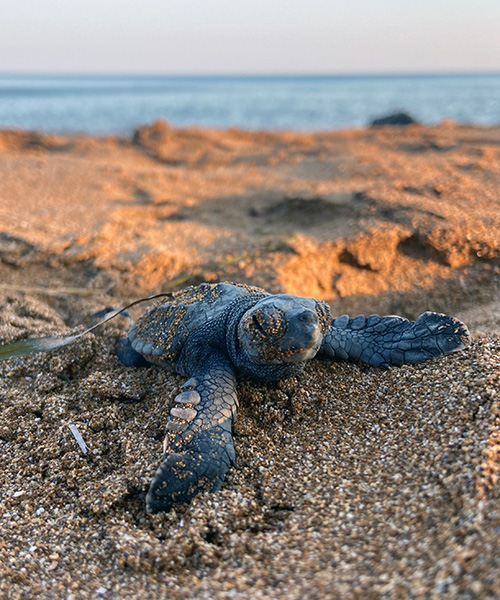
Become a part of our international team and help us protect the vulnerable sea turtles of Kefalonia while getting hands-on field research experience, meeting new people, and having fun!
Every year, sea turtles migrate to Kefalonia to forage and reproduce. Female turtles lay their eggs on the sandy beaches of the island. They make a significant effort to find the most suitable locations for their nests, but human and natural threats damage and destroy many eggs. The turtles themselves are regularly injured or killed by accidental boat strikes, entrapment in fishing gear, or after swallowing plastics. These threats push the sea turtles of Kefalonia closer to the brink of extinction.
Our goal is to study and protect the endangered sea turtles of Kefalonia and their ecosystems. To achieve our goal, we survey all nesting beaches to identify, study, and protect the turtles’ nests, monitor the population’s health and behaviour, identify threats, and implement conservation actions to protect them.
Volunteers gain valuable research experience, increase their knowledge in the field of conservation and improve interpersonal skills while exploring new places, experiencing a new culture, and making lifetime friends. Most importantly, volunteers help our effort to study and protect the threatened sea turtles of Kefalonia.
Requirements
- 18 years of age or older
- Comfortable riding a bicycle on hilly terrain
- Able to walk on a beach during a hot day
- Comfortable living in a communal environment with shared rooms and facilities and working closely with others
- Must have travel health insurance
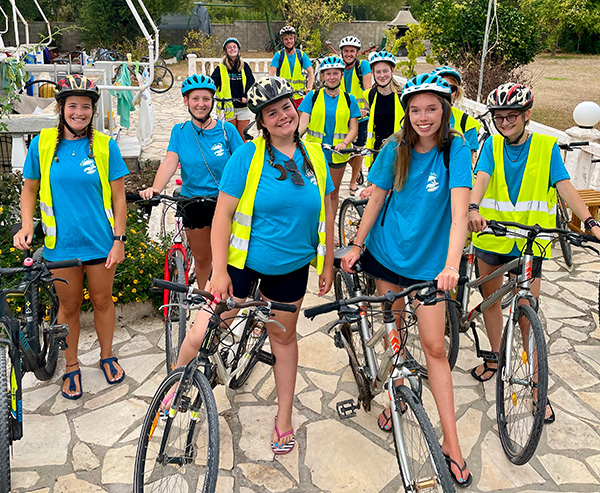
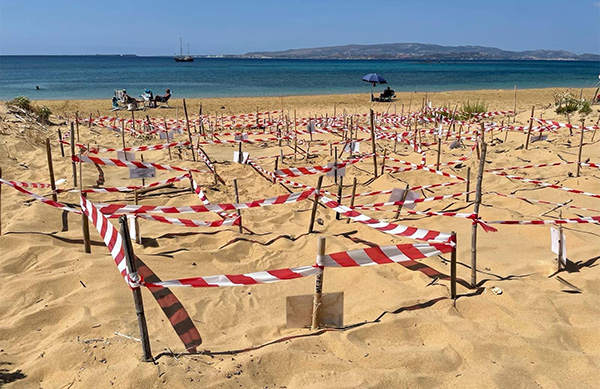
Field Work
As part of our team, you will survey the beaches of Kefalonia to find and protect sea turtle nests. Our survey teams cycle to the beaches in the early morning, walk along the golden sand looking for fresh turtle nests, then mark, measure, and protect all nests that were laid during the previous night. The primary goals are to protect sea turtle nests against accidental damage and to monitor their progress throughout incubation to the hatching stage. As the baby sea turtles hatch, we do our best to protect them from light pollution and assure they can safely crawl to the sea.
Volunteer Shift Information
Nesting Beaches
Due to the extent of the area to cover, beaches are divided into survey areas which are monitored by different morning survey teams. Beaches vary in length with some just 100 metres and others being just over 2 kilometres.
From mid-May to early August, you will patrol the nesting beaches to find sea turtle tracks on the sand from turtles that emerged during the previous night. You will then assess the tracks and verify the presence and location of eggs. You will mark this location, so it is clearly visible, and collect scientific data that are useful for the best protection of the nest and for analysis. In Lixouri Field Station, you will also have the opportunity to walk the beach throughout the night to find nesting females, observe the tagging process post-nesting and record biological data about each individual.
During the hatching season, from late July to October, you will check the beach in the morning for hatchling tracks and record their origin and orientation. Occasionally, in the early mornings you will come across newly emerged hatchlings, which you will observe until they make it safely to the sea. After a nest has hatched completely, you will conduct nest inventories to assess its hatching success and other parameters.
Hatchlings are often disoriented by light pollution from beach bars, hotels, holiday homes and street lights. They spend hours exhausting their limited energy or die on the beach instead of crawling to the sea and swimming to the open ocean. Hatchling Rescue teams collect the hatchlings as they emerge from nests that are susceptible to light pollution and release them at a darker part of the beach so they can crawl to the sea on their own. This shift runs through the night and must be done in small groups wearing dark clothes.
Being an island, Kefalonia is susceptible to plastic pollution washing up from all directions. This pollution affects sea turtles, sea birds, marine mammals, and many other marine and terrestrial species. The beach and coastal clean-ups performed by our team show the impacts of modern consumerism and the items disposed of daily, while also making a difference by protecting the local wildlife and coastal areas, aiding in their restoration.
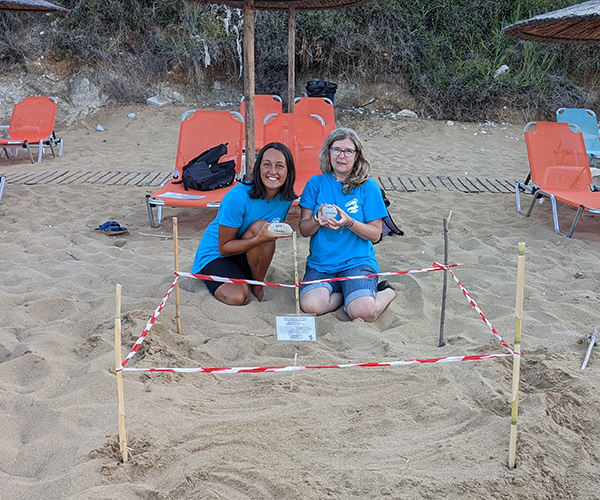
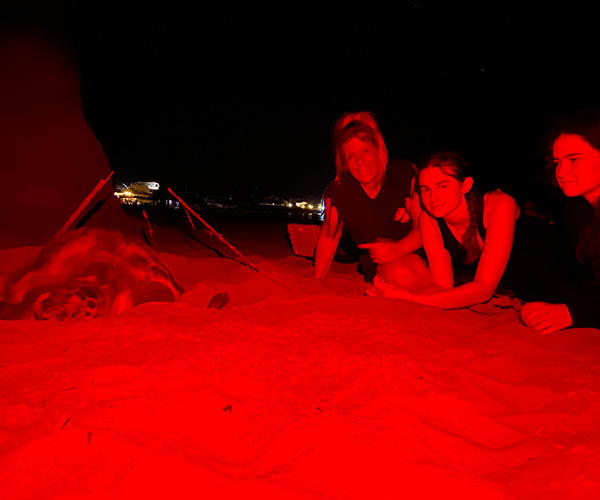
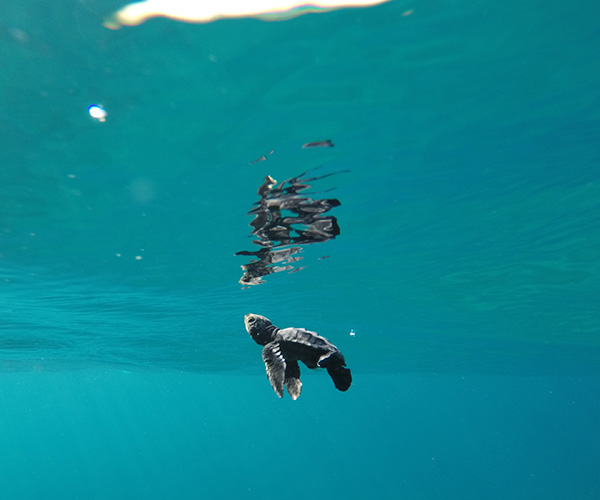
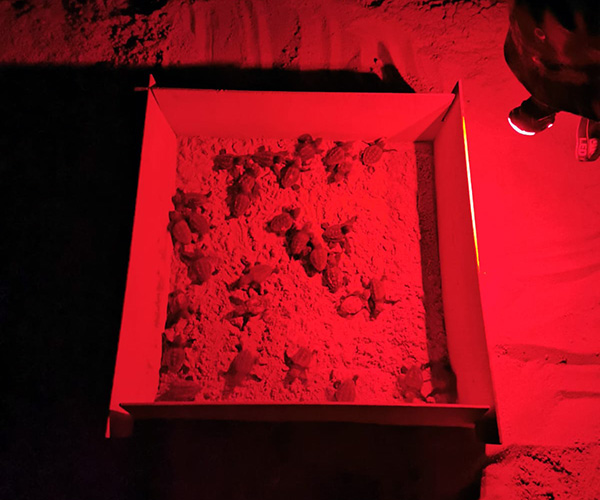
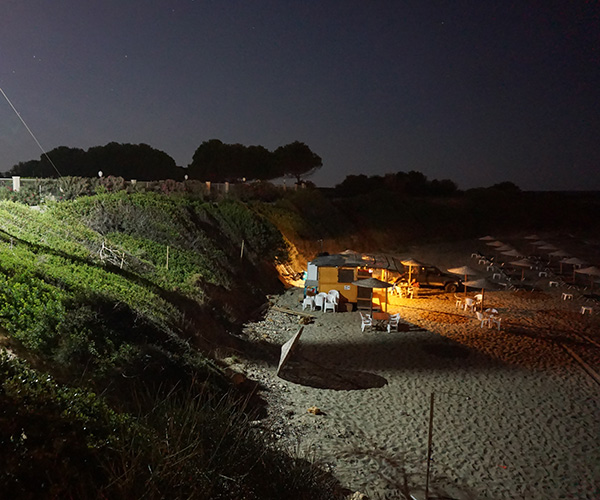
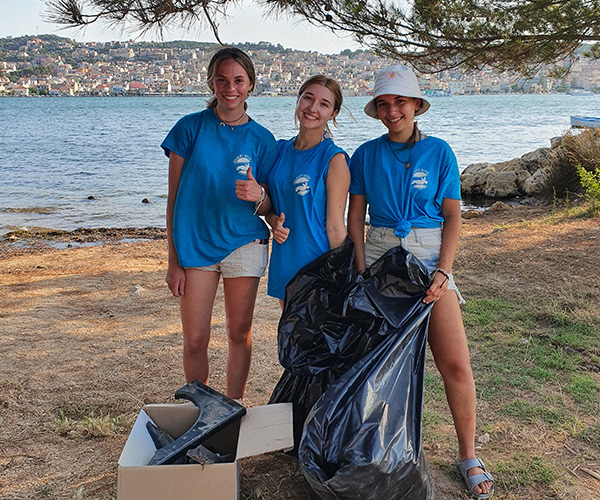
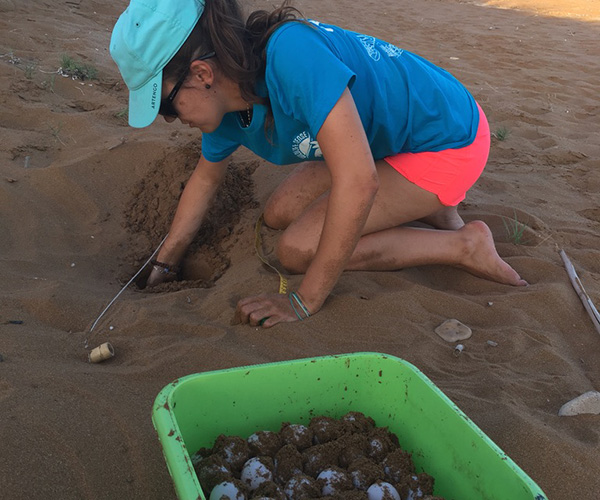
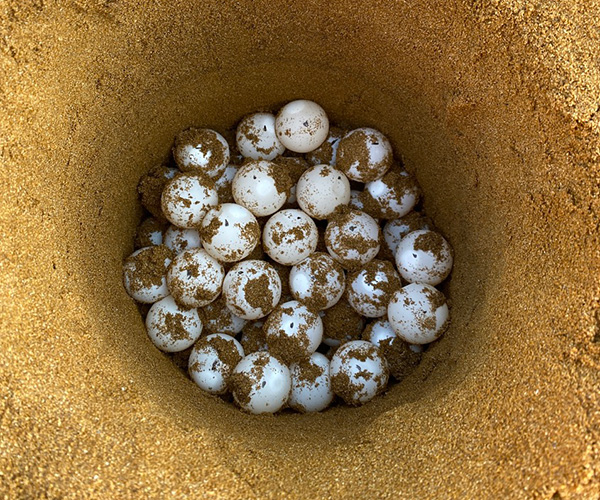
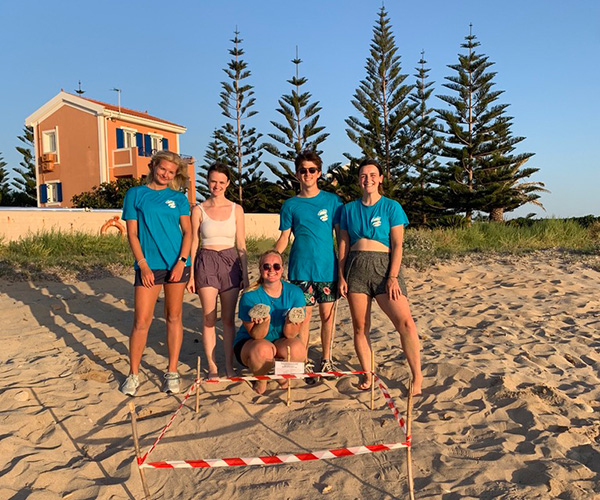
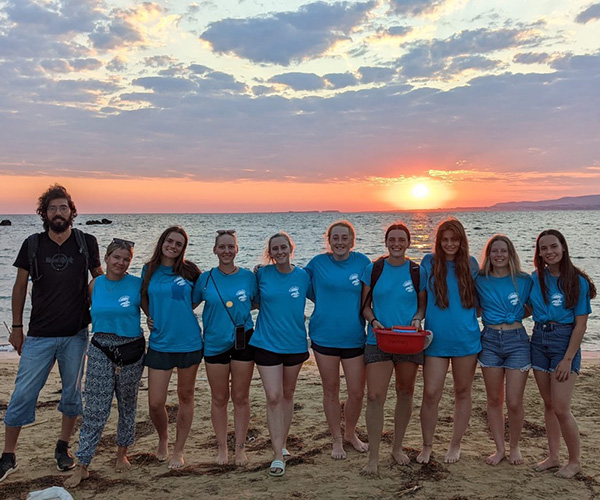
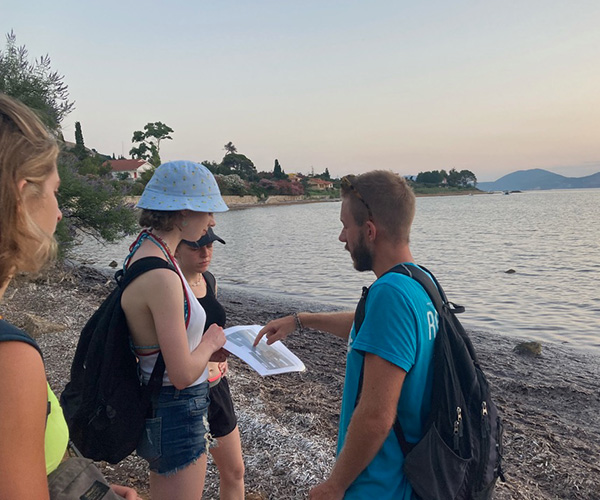
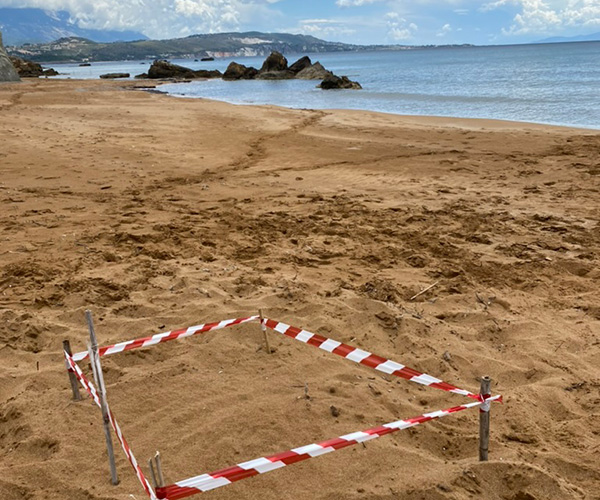
Foraging Population Studies
Hundreds of adult and sub-adult sea turtles spend time foraging in the Bay of Argostoli and the Koutavos Lagoon throughout the summer with some of them even staying over winter. Every morning, many of these turtles concentrate on the harbour front, where fishing boats return with the morning’s catch. The turtles that swim along the harbour spend time feeding off the bivalves that colonize the harbour walls, eating fish scraps the fishermen and tourists throw in the water, and exhibit a variety of behaviours between them. This gives us the unique opportunity to study their feeding behaviours and their social antagonistic interactions.
During harbour surveys, volunteers will observe these turtles and record information regarding their foraging and social behaviours. If a turtle at risk is spotted, usually having swallowed fishing hooks and lines or plastics, our team will capture the turtle and treat it or transport it for further examination.
During mating season (April/May) and later in September and October, we are able to focus more on our sea turtle tagging research. Volunteers as well as drone pilots help spot sea turtles that are suitable for tagging and then our specialized teams will capture these turtles and bring them to shore. The team will then record biological data and tag the turtles before returning them to the sea.
Also during mating season, our drone pilots operate surveys used to monitor sea turtles in the area regularly. Drone use in conservation is an important tool to monitor and protect sea turtles in the Bay of Argostoli. Drones are utilized for population counts, to identify foraging hotspots, photographic identification and occasionally to locate and aid in the rescue of injured turtles. Volunteers will observe these drone surveys to gain an understanding of drone use in sea turtle research and conservation. During the shift you will observe turtles spotted through the live video feed.
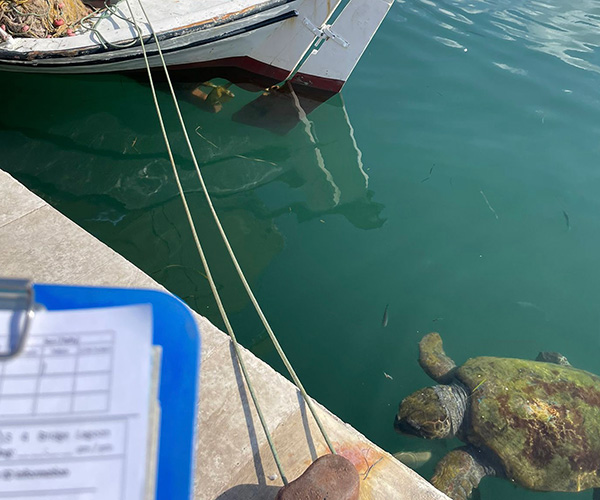
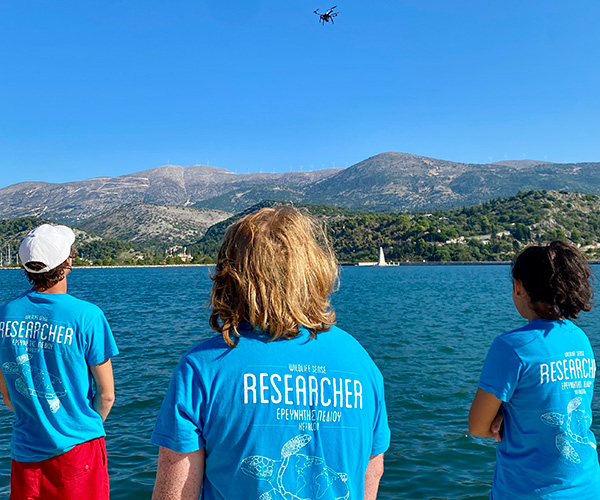
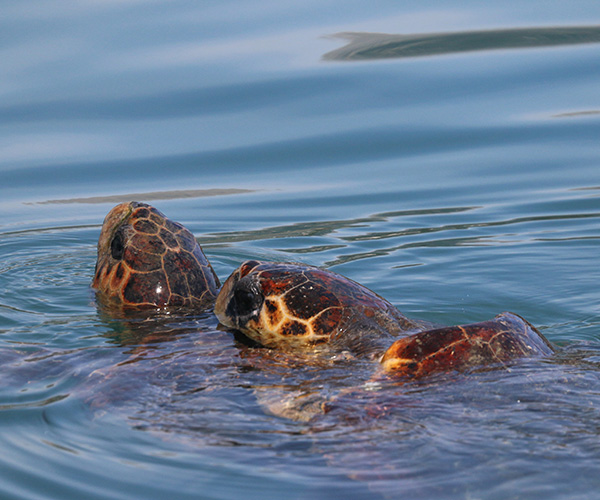
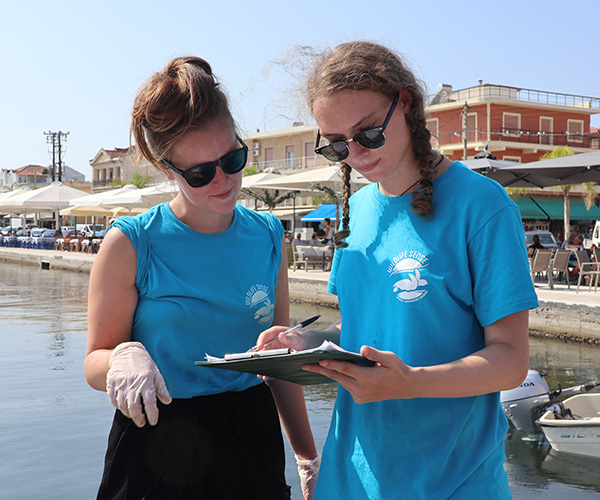
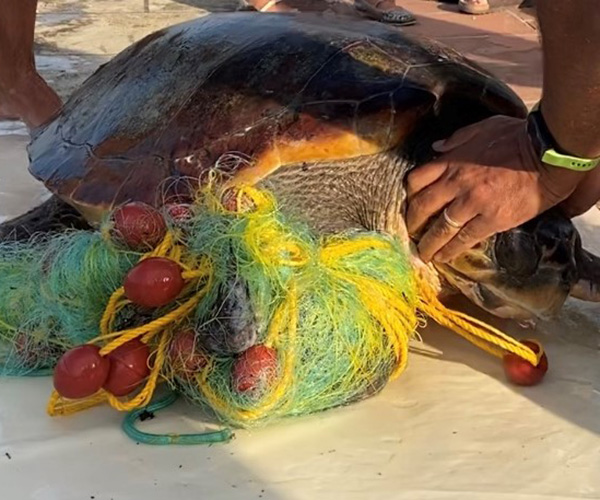
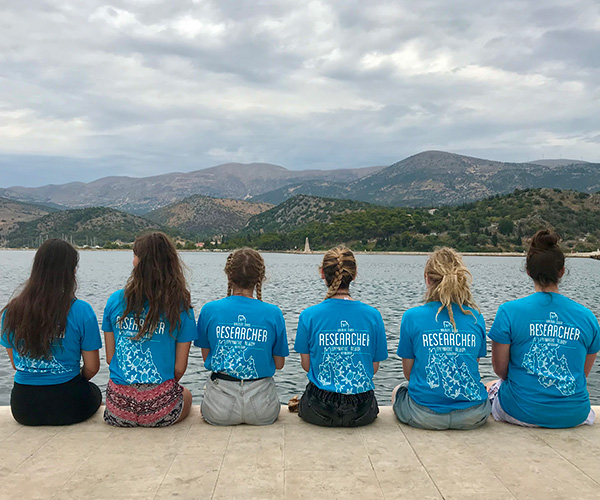
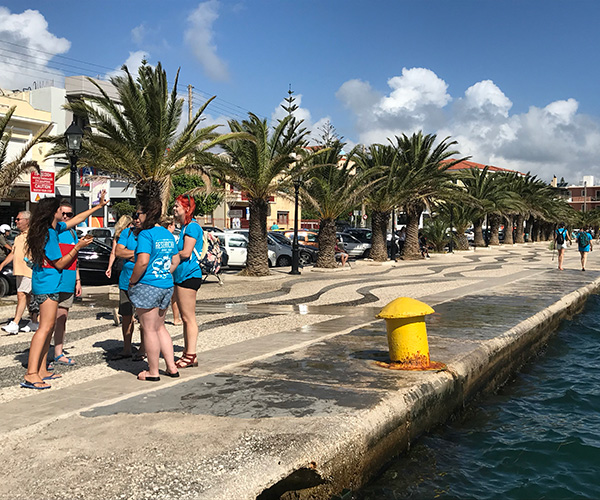
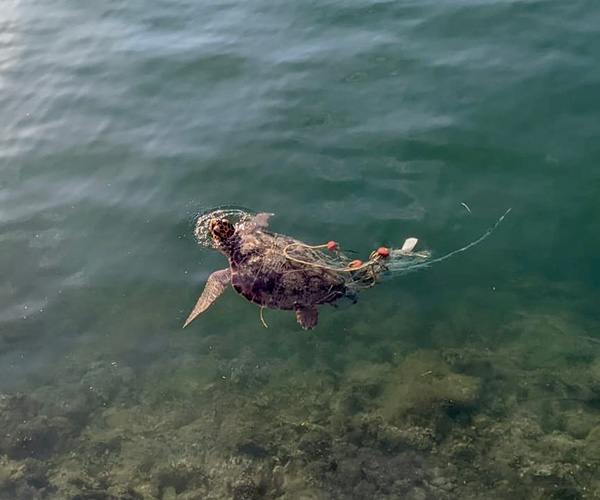
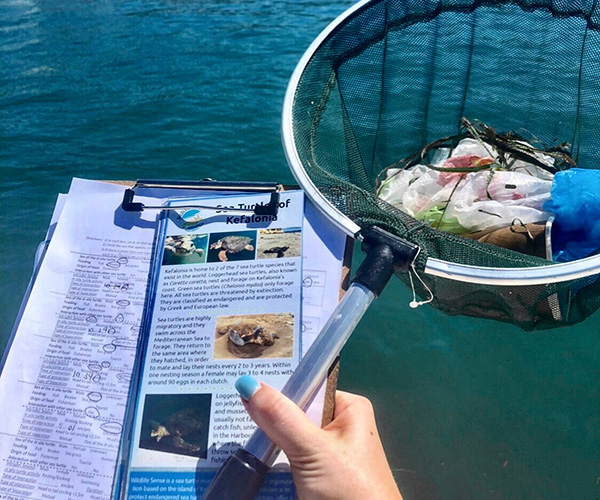
Rota
Early mornings are spent at the beach conducting beach surveys or at the harbour observing the sea turtles. You will have free time in the afternoons as the heat can be too intense to be on a shift. This time can be used to rest or explore the local area. Evening shifts can include beach profile, sand sifting, beach cleans and hatchling rescues during hatching season (Late July through October). You will have one day off in your first week and two days off for the week(s) following in order to explore other areas of the island or just walk down to the nearest beach and enjoy the sun and sea. If you are coming with a friend, please let us know so that we may schedule you the same days off and assign you the same room if you’re of the same gender. Please know if you’re coming with more than one person it may be difficult to schedule you on the same day off, but we will do our best!
To view a sample schedule of what one of your weeks may be like, please find the season (month) and Field Station you’re interested in and click on the link below:
| Argostoli Field Station | Lixouri Field Station |
|---|---|
| Mating Season (April – May) | |
| Nesting Season (June – July) | Nesting Season (June – July) |
| Hatching Season (August – October) |
Project Locations
Each Field Station has multiple rooms or apartments. Most rooms have two bunkbeds and can sleep four volunteers. A pillow, flat sheet, and fitted sheet are provided for each bed. You can bring a light blanket or sleeping bag or rent a sleeping bag from the accommodation. We do our best to assign rooms based on gender. Please let us know if you are coming with friends of the same gender and we’ll try to place you in the same room.
Kitchenets are shared among roommates with a mini stove, a cooktop and mini fridge. The bathrooms are equipped with western toilets and showers that have warm water provided by renewable energy. There is WIFI which is shared by all the volunteers, so it is suitable for messaging and emails, but typically not for video calls or live streaming.
The Field Stations are self-catered. Weekly expenses can be lowered with cooking, especially if you arrange a food share among your roommates. There are plenty of options at local stores for vegans and those with food intolerances or additional needs. Pizza and souvlaki can be delivered to the accommodation, or you can walk to a local restaurant to sit down and enjoy a Greek meal.
Argostoli (Sunday start dates)
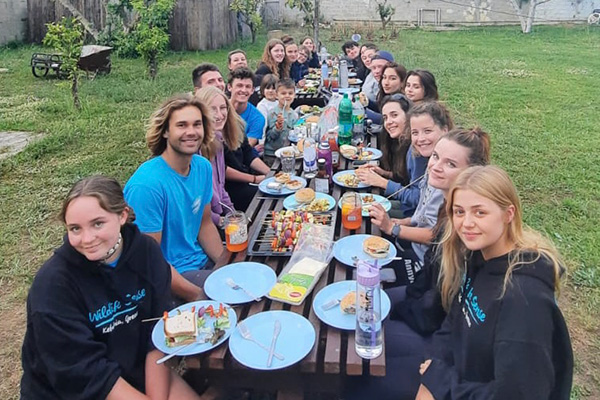
The Argostoli Field Station is located close to Kefalonia Airport (EFL). It is a short distance from the nearest beach (800m) and the closest mini market, which is around a 15-20 min walk (1.5km). Slightly larger supermarkets can be found in the neighboring village of Lassi that can be cycled to and the next larger village, the island’s capital of Argostoli (a taxi would be recommended ~20euros).
We recommend pre-ordering your groceries for the first few days as some volunteers arrive too late in the day on their start date to go out shopping. You will be given a link to an order form which will be emailed to the grocery store. Once you arrive, we will have your groceries waiting for you. You will receive more information on this once you apply.
Lixouri (Tuesday start dates)
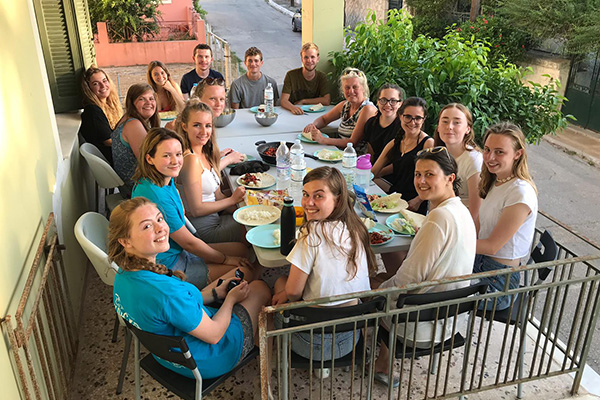
The Lixouri Field Station is situated in the Paliki peninsula, the western region of Kefalonia. The accommodation is based in the Lixouri town centre with all amenities within walking distance. Its south coast is lined with long south-facing beaches, with the closest one being a ten-minute walk away (600m). You can hop on a thirty-minute ferry to reach Argostoli, the capitol of the island, to visit different areas in your free time.
Key Differences in Field Stations
The Argostoli Field Station is based near several of the nesting beaches with the central part of the Island’s capital city Argostoli around 7km away. Lixouri is based directly in the town with the nesting beaches farther away. This makes the cycling routes of Lixouri greater in distance than those in Argostoli.
There are no night surveys to observe and tag adult turtles in Argostoli. In Lixouri, the team will patrol the main nesting beach during the night to spot, measure, and tag the nesting female turtles June through July.
Turtles concentrate in high numbers in the Argostoli Harbour where their behaviours and feeding habits can be monitored. In the Lixouri Harbour, there are fewer turtles so instead of collecting information on their behaviours, we are spotting them to understand where they spend their time during the day.
For more information about the Field Station differences take a look at our reference table.
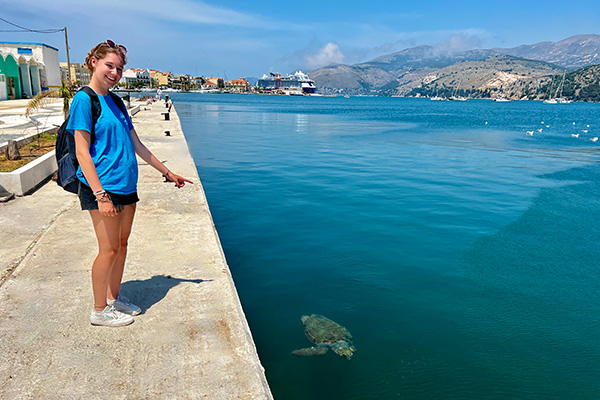
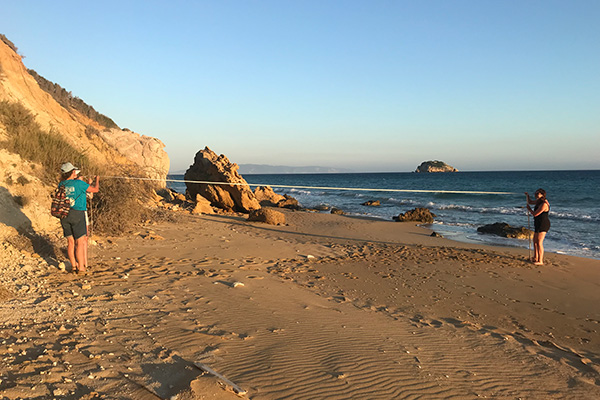
How do I volunteer?
Participation at the project is organized into two-week periods. You can volunteer for two or four weeks depending on availability. To apply click on the button below, where you will see all available starting dates and durations. Once you select a spot, you can fill in additional required information. When you complete the application, an account will be created for you at the Volunteer Console on our website, where you can view your reservation details and update your travel information when you arrange your travels.
Your spot will be held for you for three days so you can confirm your reservation with a payment. Payment options and types accepted will be available at the Volunteer Console.
Volunteering at Wildlife Sense is a great opportunity to receive internship or placement credits. You may also gain work experience or community service hours. A certificate with the hours you’ve earned will be available on your volunteer console after your departure. For any of the above you may need additional preparation please click here for more information regarding internships and research options.
School or university groups also have the option to take part in our Education Programme. Please email us for more information regarding the availability and programme overview.
What’s Included
Participation cost includes accommodation in apartments shared with the rest of the team, transport from/to the airport or bus station on your start and end date, our researcher t-shirt, ongoing training, project operation costs and onsite team leaders to assist during your stay.
To help you save on food costs, we have equipped our accommodation with fridges, cooking equipment, and utensils. We can also help advise on where to food shop. Volunteers regularly organize outings to one of the local restaurants in small or larger groups, so you’ll get a chance to experience the local cuisine.
The cost does not include travel, food, or personal expenses
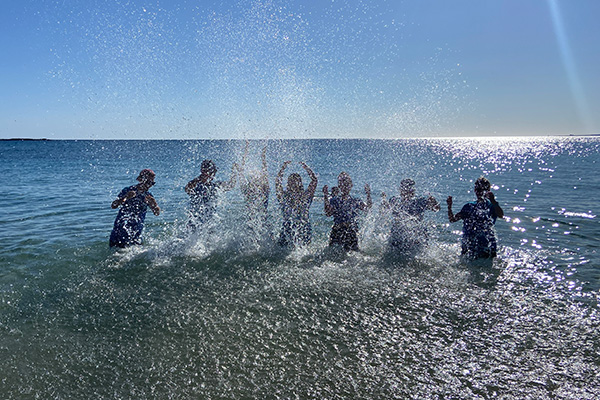
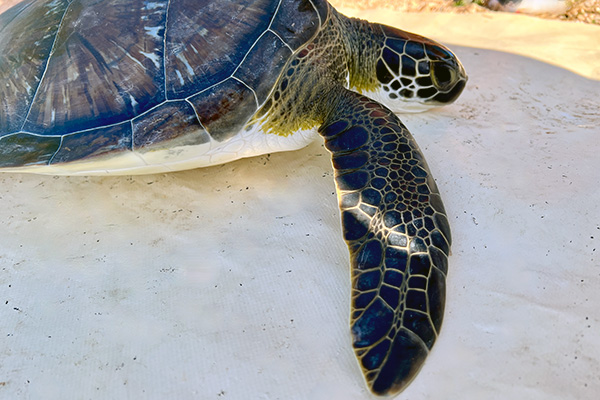
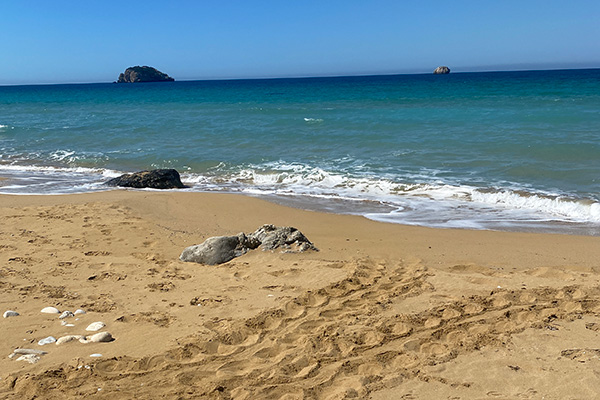
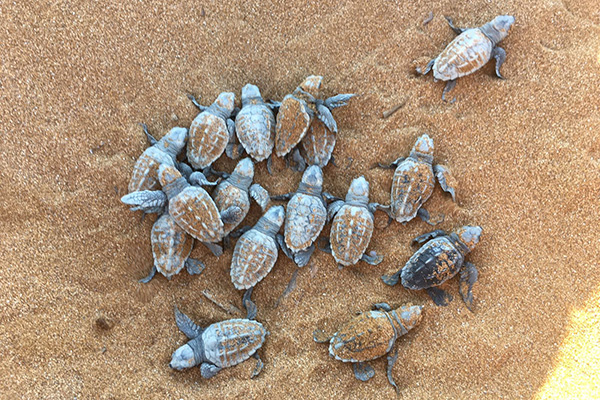
What happens next
1. Update information on the Volunteer Console
Once you have applied, you’ll receive a confirmation email with more information such as a packing list, a map of the area and popular activities to do with your time off, and information on how to get to the island and more. This information will also be available in your volunteer console. Within this area of the website, it’s important that you update your personal information and upload a badge photo for your Wildlife Sense Researcher badge. Once you have your flight details, upload them onto “Travel Info” tab within Volunteer Console.
If you need more information on how to get to Kefalonia, visit the Travel Information page.
2. Transport from Airport
Once we have your arrival details through the console, we will schedule your transport. We provide transport on start and end dates only. If you are arriving in Kefalonia before your start date or departing after your end date, we do provide transport, on your start and end date, to and from your hotel/AirBnB if it is within 3 kilometers of the airport (EFL) or directly in Argostoli town. You can always send us an email to be sure your hotel is within the designated transport zone.
3. Arrival at the accommodation
When you arrive at the at the Field Station, you will be shown your room by a member of the team. Shortly after settling into your room, you’ll receive a tour around the accommodation, be shown the weekly shift schedule and oriented to the local area and amenities that can be found nearby.
4. Training sessions
Training sessions begin on the evening of your start date. If arriving late in the day, you will be caught up on anything missed the following day. Training will then continue over the next few days alongside the field work. These training sessions will help acclimate the group and allow each volunteer to understand more about how and why we perform each shift.
Volunteer at our Sea Turtle Conservation Programme
Join our international team of volunteers in Kefalonia Island
